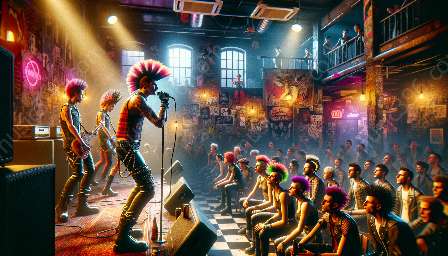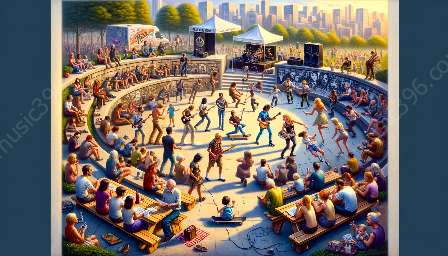Rock music has long been a dominant force in shaping the experiences and perceptions of adolescents worldwide. Its ability to connect with and reflect the lives of young people is undeniable. However, when examining the intersection of race and rock music, a complex and multifaceted picture emerges. This interplay significantly influences the way adolescents experience and perceive the world around them.
The Historical Context
The history of rock music is deeply intertwined with issues of race. From its roots in African-American blues to the development of various subgenres such as punk, metal, and alternative rock, the impact of race on the evolution of rock music is undeniable. The intersection of race and rock music has resulted in the creation of distinct and diverse musical styles that have been embraced by adolescents of all races and backgrounds.
Identity Formation
For adolescents, music plays a pivotal role in identity formation. The intersection of race and rock music can significantly impact how young people perceive themselves and others. Adolescents from different racial backgrounds may have unique interpretations of the same rock songs and artists, leading to diverse experiences and perspectives. The music becomes a lens through which adolescents view their own racial identity and that of others, shaping their understanding of diversity and inclusion.
Perceptions of Authenticity
Rock music is often associated with notions of authenticity and rebellion. However, the intersection of race introduces complexities into these perceptions. Adolescents of different racial backgrounds may navigate questions of authenticity differently when engaging with rock music. For some, the genre's predominantly white, male icons may challenge their sense of belonging and representation, while for others, these figures may serve as aspirational symbols. These dynamics influence how adolescents interpret the messages and themes within rock music and navigate their own sense of belonging within the genre.
Social and Cultural Impact
The intersection of race and rock music also has significant social and cultural implications for adolescents. Rock music has been a platform for addressing issues of race, inequality, and social justice. From the anti-establishment anthems of the 1960s to the politically charged lyrics of modern rock bands, the genre has been a vehicle for expressing and challenging racial dynamics. Adolescents who engage with rock music often find themselves immersed in a world of cultural commentary and activism, which can influence their perceptions of social justice and equity.
Intersectional Experiences
Adolescents at the intersection of multiple marginalized identities, such as race and gender, experience rock music differently. The genre has historically been male-dominated and often perpetuated racial stereotypes. However, there are also powerful examples of individuals who have challenged these norms and reshaped the narrative. Understanding the intersection of race and rock music allows for a nuanced exploration of how adolescents navigate these complex and intersectional experiences, shaping their resilience and activism.
Challenging Stereotypes and Prejudices
Rock music has the potential to challenge stereotypes and prejudices related to race. Adolescents who engage with diverse representations within rock music are exposed to a wide range of racial experiences and narratives. This exposure can lead to greater empathy, understanding, and solidarity among adolescents from different racial backgrounds, as they recognize the common threads of struggle and resilience woven through the genre's history and evolution.
Conclusion
The intersection of race and rock music significantly influences adolescent experiences and perceptions. By understanding this interplay, we gain insight into the diverse ways in which young people engage with and interpret the world around them. Rock music has the power to shape identities, challenge prejudices, and inspire activism, making it a potent force in the lives of adolescents navigating the complexities of race and identity.


















































